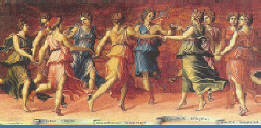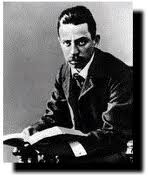|
|
René Karl Wilhelm Johann Josef Maria Rilke was born in Prague to a railway official married
to a woman of superior social standing. In his early years, his mother dressed her son in
girls' clothing in compensation for the early death of her first child, a daughter, who
died as a baby. Despite his sensitive nature, Rilke was obliged from age 11 to 16 to
attend a military academy but subsequently entered university to study literature and
philosophy in Prague and Munich.
He was urged by an older married woman, the psychoanalyst, Lou Andreas-Salomé, with whom
he was infatuated, to substitute Rainer for his first name. She remained a confidante
throughout his life. He travelled, in 1898, as companion to the older couple to Italy and,
in the following year, to Russia and, subsequently, with Lou alone to Russia again when
he met Tolstoy and Pasternak, senior. In early 1900, he married the sculptress, Clara
Westhoff, who bore him a daughter that December. The following year, he visited Rodin
in Paris completing several poetry collections the style of which was heavily
influenced by his admiration for, and advice received from, Rodin.
Rilke travelled to Spain and Trieste; but he was called to military service in 1916. He was,
however, discharged on health grounds only a few months later. His post war years were
spent in Switzerland where, after several years of low productivity, he experienced a
late flourishing of creativity that lasted until his death from leukaemia.
Rilke wrote numerous poems in both the German and French languages. He is regarded as a
pivotal poet who often wrote in metaphorical terms of the difficulties of life.
|

